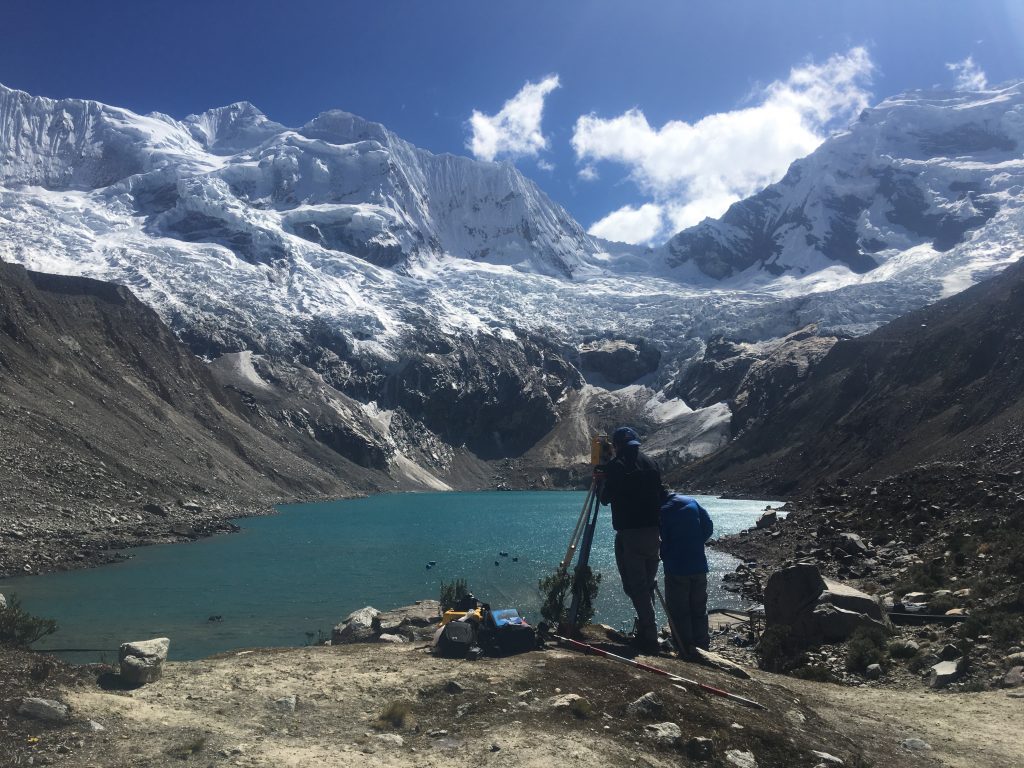This summer, Holly Moulton traveled to Peru for seven weeks to participate in research and training related to glacier melt, hydrologic variability and social aspects of climate change in the Peruvian Andes. Her first stop was the “International Social Science Forum: Interdisciplinary Dialogues on Climate Change, Disasters and Governance,” in Cusco, Peru. The conference was comprised of a multi-disciplinary and transnational group of professionals, academics, and members of civil society, who presented on issues related to climate change in high-mountain systems. Following the Social Science Forum, Holly traveled to Pisac to participate in the Winter School, a one-week training program sponsored by Proyecto Glaciares+ and the University of Zurich. The course provided background knowledge in integrated management of montane hydrologic resources to a team of diverse professionals. Following these experiences, Holly traveled to Huaraz, Peru to conduct research on social responses to climate change adaptations in the region, specifically related to flood hazards and water management at three glacial lakes. The work builds on more than 15 years of Cordillera Blanca glacier-society research conducted by Mark Carey and the Glacier Lab. This most recent work was conducted in collaboration with Mark and funded by a grant called Aguafuturo from the University of Zurich, Switzerland. Aguafuturo seeks to create an integrated social and technical risk management framework for climate change related hydrologic variability and adaptation measures in the high Andes.
These various experiences and research show definitively that trans-disciplinary approaches to climate change adaptation in the Peruvian Andes provide both challenges and opportunities for future research. Climate change adaptation is a complex and multi-faceted process that is affected by social, political and natural variables alike. Above all, integrated management of hydrologic resources is critical. Reducing flood risks, for example, may be insufficient as the only goal of a public works project at a glacial lake, given the projected future scarcity of water in the Cordillera Blanca and the need to anticipate related challenges. In this way, it is necessary to understand both the social and technical aspects of and barriers to climate change adaptation and water resource shifts, both in the short and long term. The Glacier Lab researchers and the Aguafuturo team at the University of Zurich believe that their research in the Cordillera Blanca can also be useful for understanding challenges and opportunities for climate change adaptation in other glaciated mountain regions across the globe.
